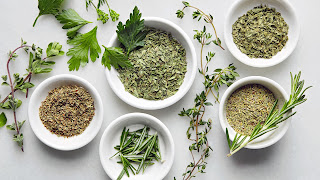Unleash Your Creativity: Designing a Stunning Herb Garden

Introduction: Herb gardens are a delightful addition to any home, providing fresh flavors, aromatic scents, and a touch of greenery. But why settle for a simple herb patch when you can create a stunning and imaginative herb garden that not only enhances your culinary adventures but also becomes a visual delight? In this blog post, we'll explore the world of creative herb garden designs that are sure to inspire your inner gardening artist. So grab your gardening gloves and let's dive into the realm of botanical creativity! 1. Vertical Herb Gardens: Vertical gardens are an excellent option for those with limited space or those looking to add an artistic touch to their herb garden. Utilize vertical wall space by installing modular planters or repurposing wooden pallets. Arrange your herbs in an eye-catching pattern, creating a living work of art that doubles as a functional garden. Not only will this design save space, but it will also add a striking visual element to ...



